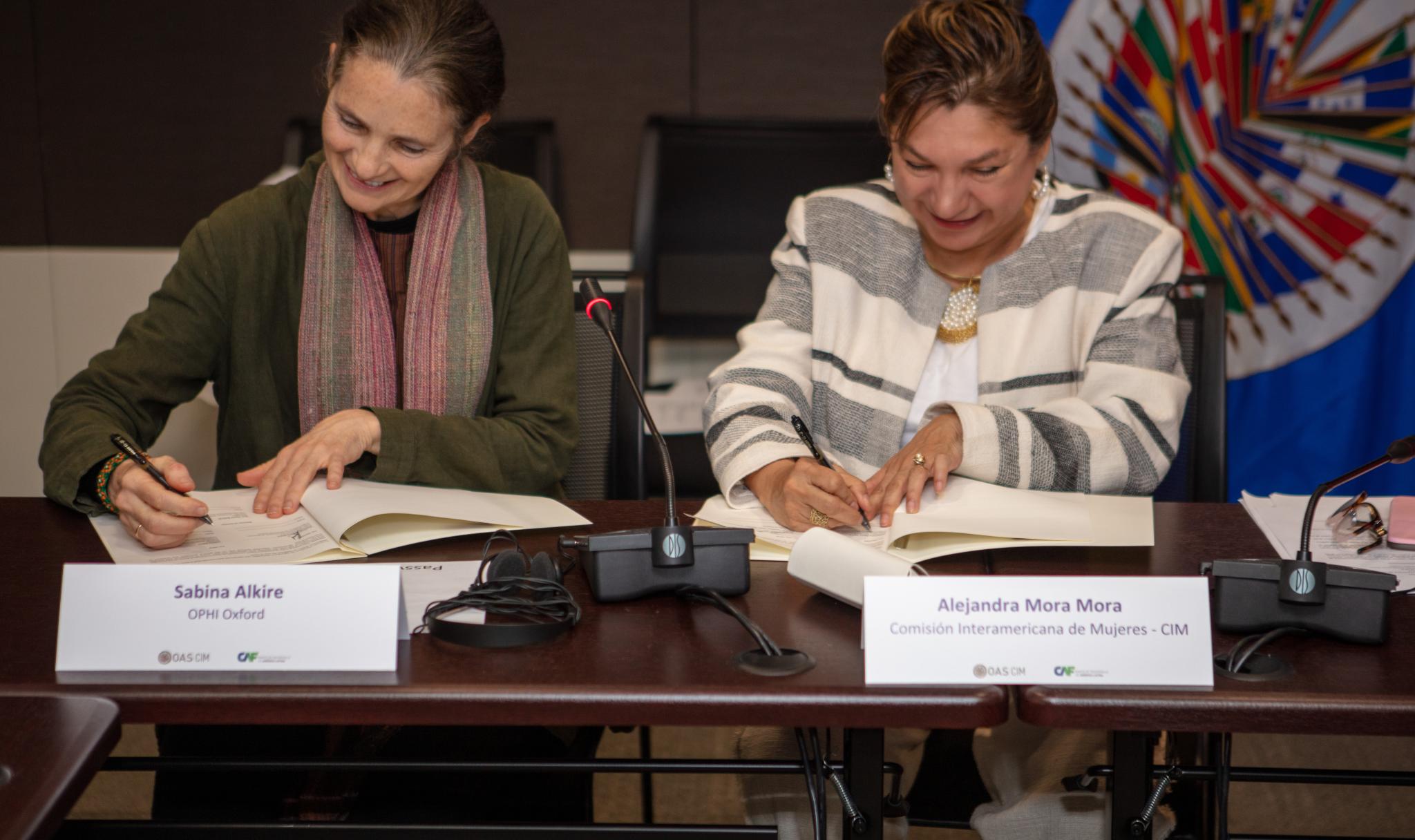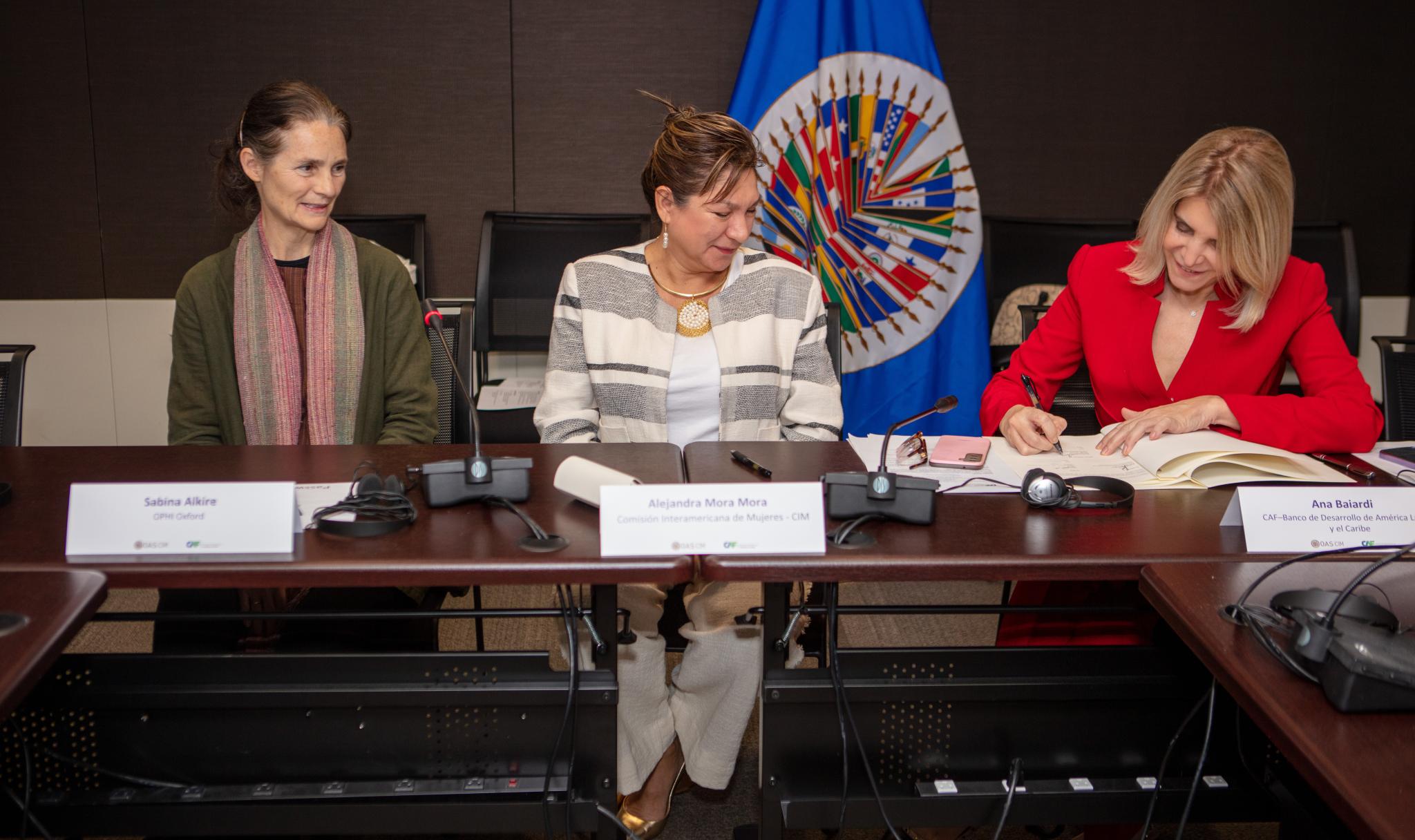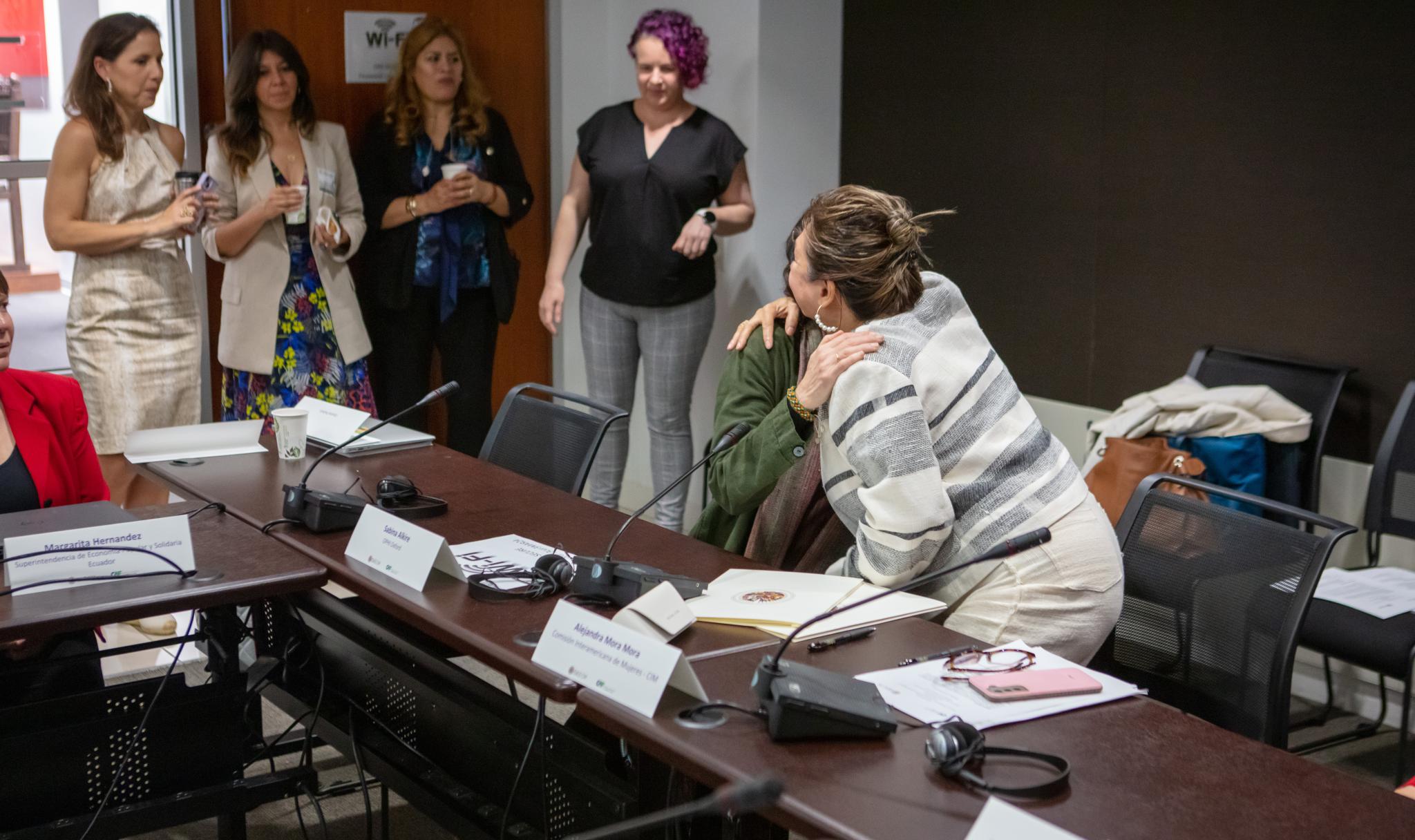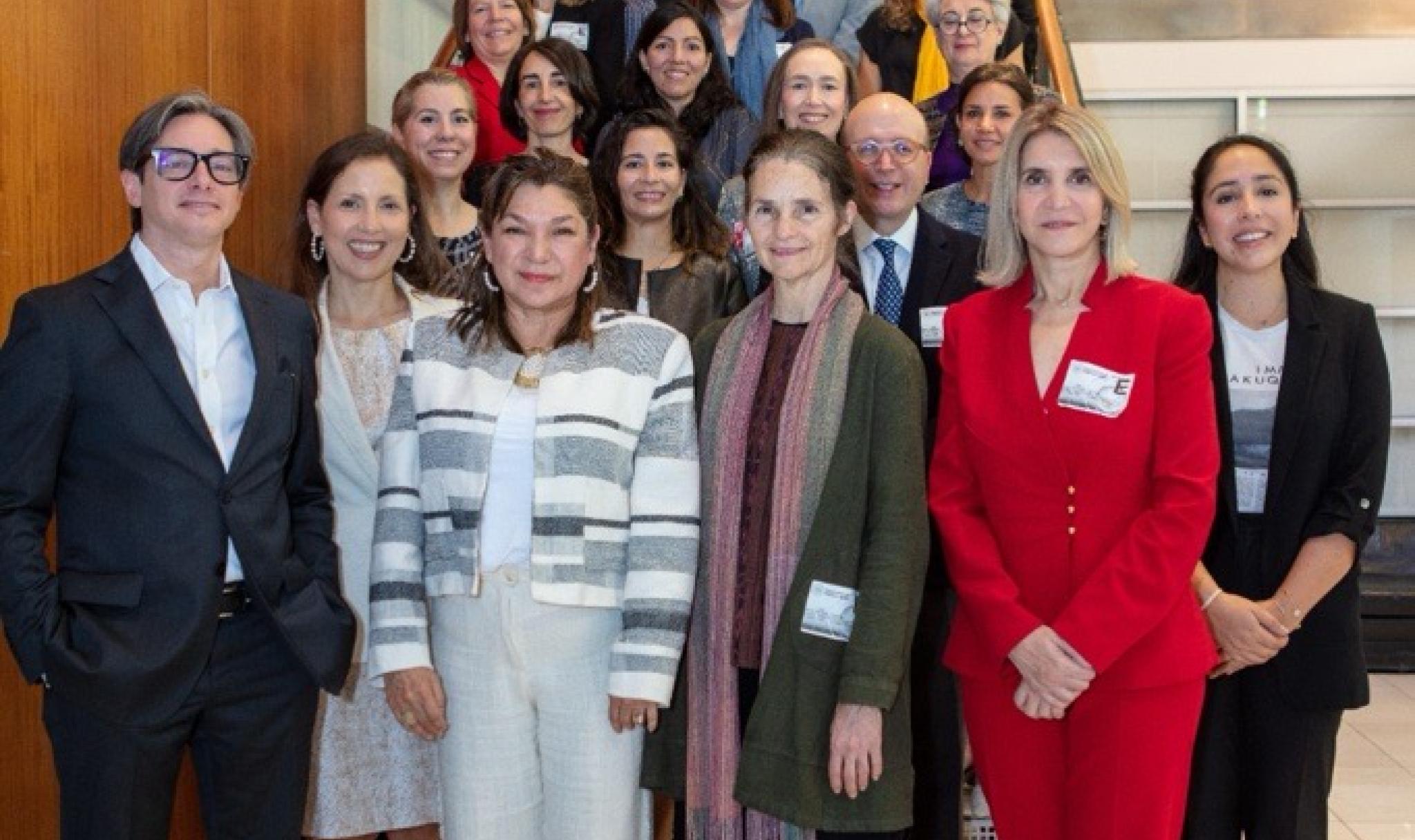Collaboration between CIM and OPHI to address gender and multidimensional poverty
The Inter-American Commission of Women (CIM) of the Organization of American States (OAS) and the Oxford Poverty and Human Development Initiative (OPHI) at the University of Oxford have signed a Statement of Intent to integrate an intersectional gender perspective into the measurement and use of multidimensional poverty data in public policy in Latin America and the Caribbean. Among other mandates, this initiative is framed within the implementation of the OAS Decade and the Declaration on the Rights of All Women, Adolescents, and Girls in Rural Settings in the Americas.
According to the 2023 UNDP LAC report, in large areas of Latin America and the Caribbean, the incidence of multidimensional poverty among women varies depending on the territory in which they live, 58% of rural women, compared to 18% of urban women, live in multidimensional poverty. The lack of disaggregated data is one of the main obstacles to the formulation of effective public policies to adequately address their demands.
This strategic collaboration between CIM and OPHI aims to expand and improve the availability of disaggregated data, as well as to build capacities and influence public policy formulation from an intersectional gender perspective. Special emphasis is placed on including rural, indigenous, Afro-descendant, and other women in situations of vulnerability, recognizing the importance of accurate data in the fight against poverty.
The result of this collaboration will generate fundamental tools, as well as training and technical assistance for OAS Member States and other relevant actors, in order to promote the Decade of Rural Women and public policies for equality.
"This alliance between CIM and OPHI represents a significant step in our efforts to address the historical structural barriers facing women, hindering their full integral development in the face of the increasing feminization of poverty," said CIM Executive Secretary Alejandra Mora Mora. "We are committed to incorporating intersectionality to seek innovative solutions that positively impact the lives of women, considering the diversity of our region."
Sabina Alkire, OPHI Director remarked: "Women experience multidimensional poverty differently than men. This is made evident in areas such as health, gender violence, and education. However, the absence of data for analysis, leaves us with an incomplete portrait of multidimensional poverty of women in Latin America and the Caribbean. Our joint objective and commitment (OPHI-CIM) is the eradication of multidimensional poverty for all women in LAC and the reduction of gender inequality. To this end, we will collaborate to advocate for more and better data, and its use for public policy and implementation. We hope this will be a high-impact partnership to develop a fuller portrait of women's poverty in LAC to leave no one behind."
This Statement reflects the shared commitment of both institutions to gender equality, particularly focusing on the experience of rural women and the fight against multidimensional poverty in the region.
For more information, please contact:
Gina Labanca | CIM/OAS: glabanca@oas.org
Maya Evans | OPHI: maya.evans@qeh.ox.ac.uk
About CIM/OAS:
The main hemispheric political forum for the promotion of women's rights and gender equality. Established in 1928 - in recognition of the importance of women's social inclusion for democratic strengthening and human development in the Americas – CIM/OAS was the first intergovernmental organization established to promote women's human rights and gender equality.
About OPHI:
The Oxford Poverty and Human Development Initiative (OPHI) is a research centre working on the multidimensional measurement of poverty and wellbeing to help guide effective policymaking around the world. OPHI is based in the Oxford Department of International Development at the University of Oxford, but its focus is global with particular attention paid to countries in developing regions.






